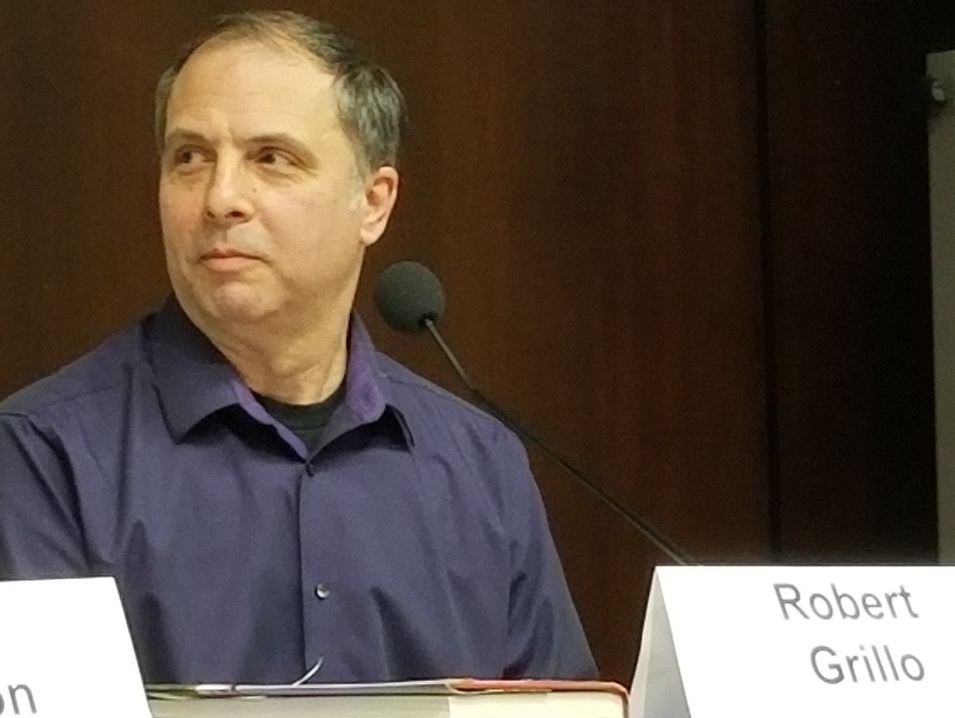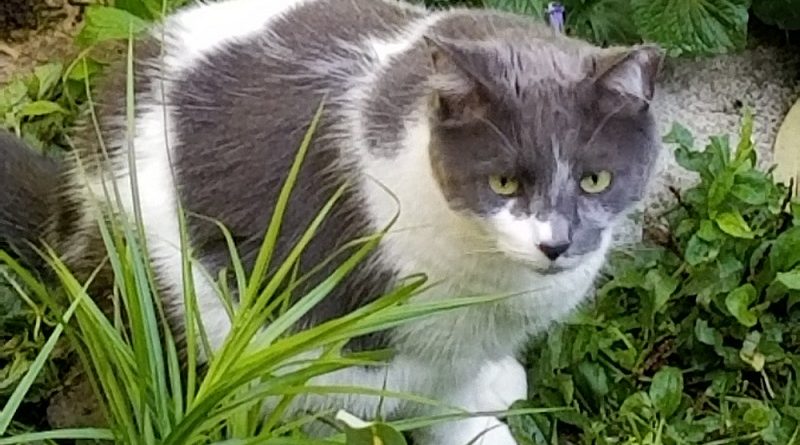Cats and Trees and Arborists
Podcast: Play in new window | Download (Duration: 1:28:48 — 41.5MB)
Subscribe: Apple Podcasts | Spotify | Android | iHeartRadio | Podchaser | Email | TuneIn | RSS | More
(February 2, 2020) Today is LaGata’s birthday. You might recognize her as the cat on the home page of this website. That’s because she is the mascot for The Mike Nowak Show with Peggy Malecki. But she’s not the reason we are talking about cats and trees and arborists this morning. (Though would it kill you to wish her a happy birthday?)
Today, Scott Jamieson from Bartlett Tree Experts returns to the show. (Full disclosure: they are a sponsor for our radio program. In fact, their arborists regularly appear on the show to talk about tree care.) Scott is Vice President and Midwest Division Manager for the company, and a regular cyclist on Tour des Trees. This year, Tour des Trees will be held from August 29 to September 4, 2020 in Colorado with a target distance of ~300 miles over five full days of riding. Um…I’ll pass.
Scott was with us just three months ago to talk about fall tree care. Now it’s the dead of winter, but that also happens to be prime time for a lot of tree work. I note that, to date, this has not been a particularly brutal season. So, we’ll ask Scott whether that’s good or bad for tree care. For instance, when the ground is not frozen, which has been the case for most days this winter, is that good or bad for tree work?
What about the risk posed by falling branches in the winter, due to ice and snow? And is any amount of salt tolerable by trees? Those are certainly questions that you would expect an arborist to answer about this time of year. However, Scott wrote to me recently to point out that arborists face all kinds of challenges…including cats.
I rescued one once from a Chicago backyard by having to climb 70 feet up to get this kitten that returned the favor by sinking its claws in to my wrist as I put it in a pillow case and threw…I mean gently lowered it to the ground via a rope. A neighbor adopted it and named it Jamie after me. True story. No video.
That made me wonder about other animals that might be caught in trees. We’re not talking about bears. We’re talking about cats and trees and arborists. And your questions are always welcome at 877-711-5611 and on Facebook, Twitter and The Gram.
From slaughter capital of the world to no kill zone
That headline is lifted from a website for Slaughter Free Chicago. Robert Grillo is the founder of that group and Slaughter Free Cities. In their own words,
 Slaughter Free Chicago is a campaign launched in 2018 by Free from Harm, a non profit 501c3 organization dedicated to helping end animal exploitation through grassroots activism and public education. The mission of Slaughter Free Chicago is to end slaughter in Chicago for the benefit of animals, workers, communities and the planet.
Slaughter Free Chicago is a campaign launched in 2018 by Free from Harm, a non profit 501c3 organization dedicated to helping end animal exploitation through grassroots activism and public education. The mission of Slaughter Free Chicago is to end slaughter in Chicago for the benefit of animals, workers, communities and the planet.
That would be quite an accomplishment in Chicago, once known as “hog butcher for the world,” in the words of Carl Sandberg. But the world has changed since 1914. Only a handful of slaughterhouses remain in the City of the Big Shoulders. They are as cruel now as they were then. And perhaps, when they are in violation of of sanitation laws, more dangerous than ever. One can’t help but think about the outbreak of coronavirus in China, which has the entire planet on alert.
On Thursday, I attended a panel presented by Northwestern University as part of their Campaign Against Factory Farming week. Grillo was on that panel, as was friend of the show Karen Hudson from Illinois Citizens for Clean Air and Water (ICCAW). The week of conversations was part of an Animal Legal Defense Fund (ALDF) campaign. Interestingly, ALDF recently released the 14th annual U.S. State Animal Protection Laws Rankings Report (2019), assessing the strengths and weaknesses of each state and territory’s animal protection laws.
Want to know who’s number one? Spoiler alert: it’s Illinois. Still, Slaughter Free Chicago continues its activism, including a recent “confrontation” (their words) with Chicago Public Health Commissioner Allison Arwady.
And their work has expanded to Milwaukee. Slaughter Free Milwaukee was part of a recent effort that resulted in Strauss Brands LLC dropping its plans for a slaughterhouse and meat processing plant on Milwaukee’s north side. You can view a video of Balaji Venkatesan from Slaughter Free Milwaukee talking to reporters here.
The background for this is the inescapable fact that the world would be much better if we ate less meat. Robert Grillo and Balaji Venkatesan join us on the show this morning.

